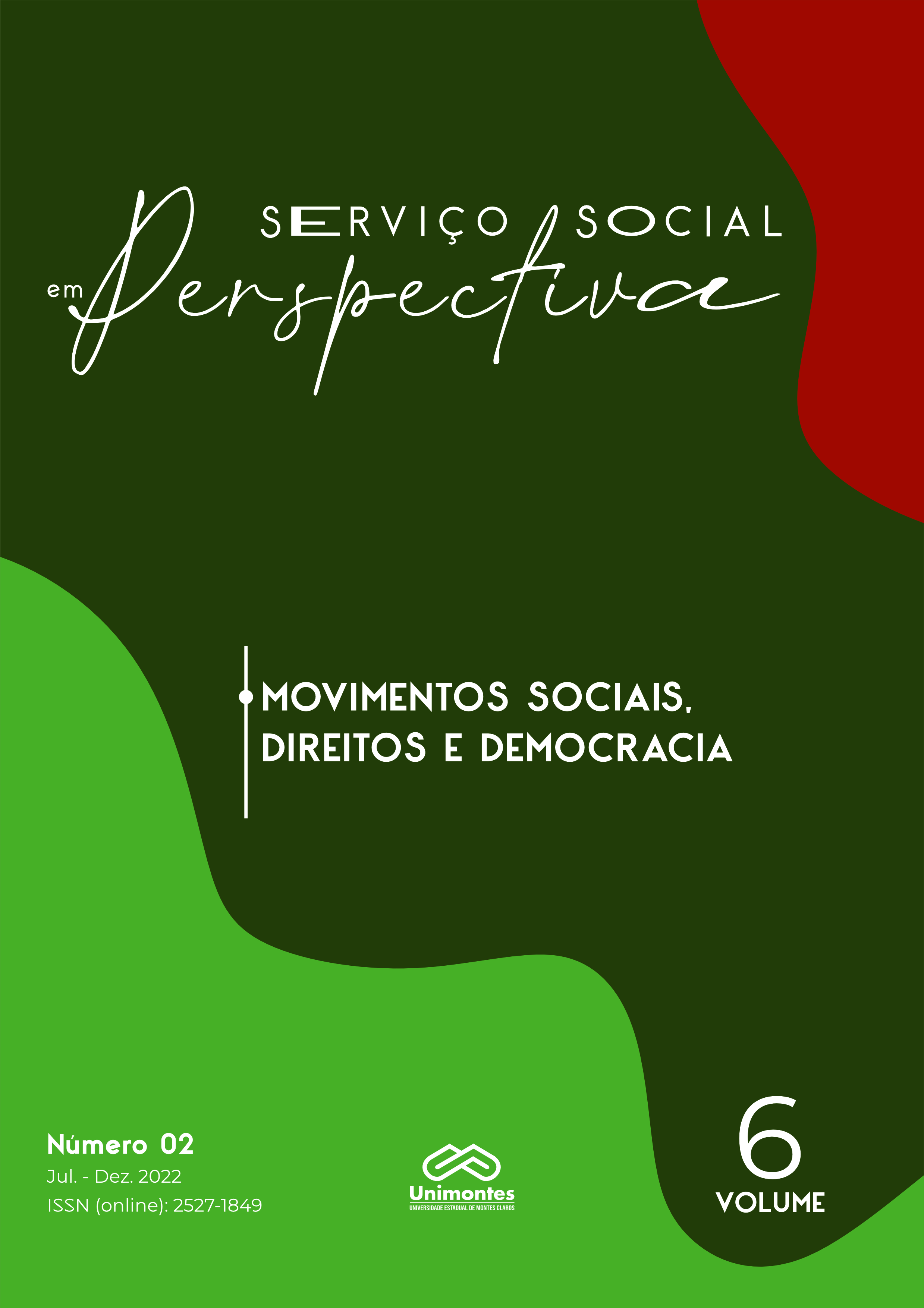The investigative dimension in the formation and professional practice of the social worker
DOI:
10.46551/rssp.202227Keywords:
Social Work; Investigative Dimension; Professional formation; Professional Practice.Abstract
ABSTRACT: The present article aims to discuss the nature of the investigative dimension in professional formation in Social Work, both in terms of the process of production of knowledge and in terms of professional practice. With this objective in mind, we will analyze aspects of the investigative dimension in the processes related to professional intervention and the production of knowledge in order to understand its particularities and, based on them, advance the debate about the place this dimension occupies in Social Work. We will see that, in Social Work, the investigative dimension is a structuring and transversal dimension, revealing itself an important mediation that articulates theory and practice. However, by its very nature, we see that the investigative dimension in Social Work is broader than its mere reduction to scientific research.
Downloads
References
Referências bibliográficas
ABEPSS – Diretrizes Curriculares e pesquisa em Serviço Social. 8 de novembro de 1996. Disponível em: <https://www.abepss.org.br/arquivos/textos/documento_201603311138166377210.pdf> Acesso em: 28/04/2022.
ANDRADE, M. Por que em tempos de expansão do irracionalismo a ontologia materialista histórico-dialética é tão necessária? (Mimeo).
GIANNA. S. D. Decadência ideológica do pensamento burguês: a crítica ontológica de Lukács ao agnosticismo e ao irracionalismo. (No prelo)
GUERRA, Y. A dimensão investigativa no exercício profissional. In: Serviço Social: direitos sociais e competências profissionais. Brasília: CFESS/ABEPSS, 2009.
IAMAMOTO, M. V. e Carvalho, R. de. Relações sociais e Serviço Social no Brasil: esboço de uma interpretação histórico-metodológica. 16 ed. São Paulo: Cortez; [Lima, Peru]: CELATS, 2004.
IAMAMOTO, M. V. Renovação e conservadorismo no Serviço Social: ensaios críticos. 3. ed. São Paulo, Cortez, 1995.
_______________. O Serviço social na contemporaneidade: trabalho e formação profissional. 7. ed. São Paulo: Cortez, 2005.
LUKÁCS, G. Existencialismo ou marxismo? Apresentação e tradução, José Carlos Bruni. São Paulo: Editora Senzala, 1967.
_________. Prolegômenos para a ontologia do ser social. Traduzido por Sergio Lessa e revisado por Mariana Andrade. Volume 13. Maceió: Coletivo Veredas, 2018.
_________. Como a Alemanha se tornou o centro da ideologia reacionária? Tradução Mariana Andrade. Maceió: Coletivo Veredas, 2021.
MONTAÑO, C. A natureza do serviço social: Um ensaio sobre sua gênese, a “especificidade” e sua reprodução. São Paulo: Cortez, 1998.
___________. Presentación: El debate metodológico de los ’80/’90. El enfoque ontológico versus el abordaje epistemológico. In: Metodología y Servicio Social. Hoy en Debate. VV.AA. São Paulo, Cortez, 2000.
NETTO, J. P. Capitalismo monopolista e Serviço Social. 3. ed. ampliada. São Paulo: Cortez, 2001.
_________. Introdução ao método na teoria social. In: Serviço Social: direitos sociais e competências profissionais. Brasília: CFESS/ABEPSS, 2009.











